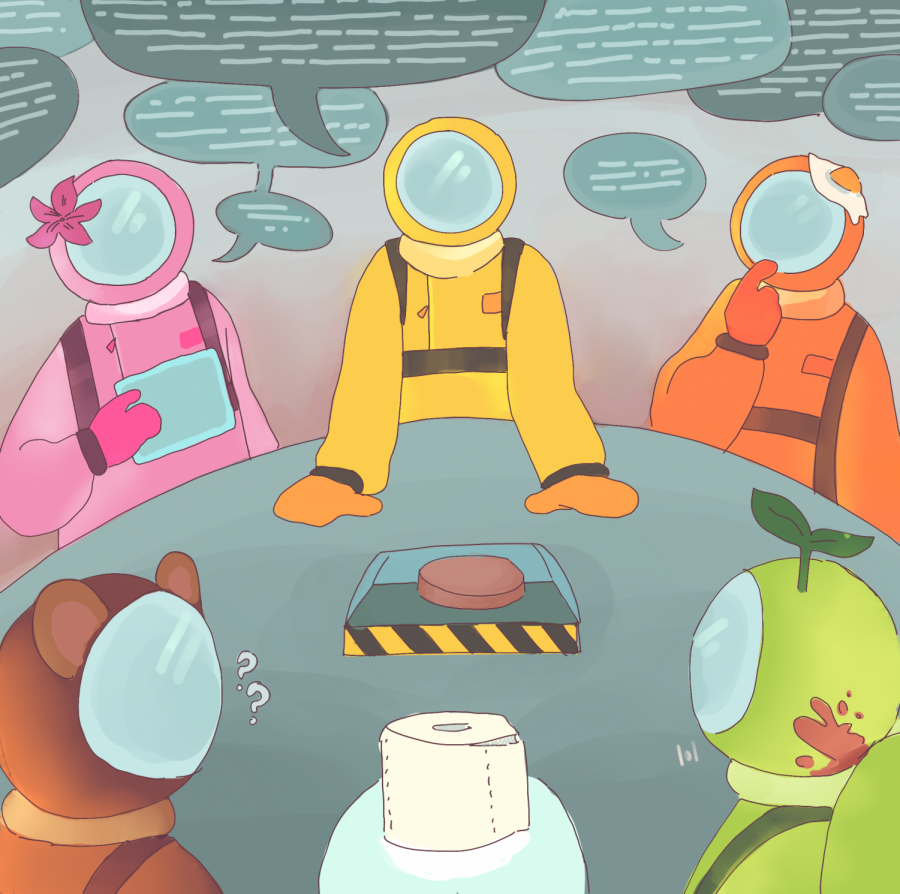What Fall Guys and Among Us tell about the future of online games
October 7, 2020
As 2020 passes, it’s clear that games are becoming more and more mainstream amongst people who don’t play games regularly. For years, companies have been scratching their heads wondering how to make games that new players would gravitate towards quickly and learn fast, without alienating those who are more older players who are more experienced with games. From easy modes for accessibility to games geared towards a more inexperienced crowd, barely anyone in the industry has been able to find the perfect balance needed. That is until 2020.
While these companies thought of ways to innovate, innovation was happening right under their noses. Recently, two games have been spreading around through social media and word of mouth, Fall Guys and Among Us. It’s not hard to find a friend who plays Fall Guys or to find a group of people asking to join their Among Us game now, but why have these two games, specifically, taken the spotlight? What are they doing right that other games aren’t doing?
Fall Guys is a game about funny jelly bean people competing in a bunch of Wipe-Out like activities and obstacle courses. Up to 60 people can join in one game and have massive races to a finish line, compete in silly team sports, and a handful of other activities until there is one man standing, much like a battle royale game in the same vein as Fortnite. It’s an extremely low commitment game to play, rounds lasting at most around five to ten minutes. It’s also a familiar concept to many people. Everyone is familiar with Wipe-Out style minigames and the bright and funny nature of the game assures that anyone can enjoy it. Many other online games, such as Halo, Fortnite, Call of Duty, etc., take up a lot of time and commitment to really get playing with rounds taking up much more time to get a couple of rounds of play. The game is easy to play, it respects the player’s time.
Similarly, Among Us is a game in which a group of astronauts are at a base and must complete tasks such as connecting loose wires, swiping your ID, and throwing out trash. Along with these tasks, there will be at least one or two imposters whose main objective is to kill other crewmates while remaining under the radar using vents to travel quickly around the map and sabotaging certain utilities such as shutting the lights or making the reactor fail, making innocent crewmates run to parts of the map to fix the problem. The main twist of the game is that once someone dies their body is left behind and a person can report it and call a meeting where everyone discusses who they believe the imposter is. They can all choose to vote someone out of the base based on what was said in the meeting. The game ends once the imposters win by killing everyone except one or two crewmates, or by sabotaging a reactor or oxygen supply. The crewmates win by getting all the imposters voted out. The main appeal comes from the fast-paced nature of the game and the debates from the discussion period. Games last for around eight minutes and the debates bring hilarious breaks in the pace. Everyone explains what they saw and getting to see an imposter’s argument starts to fall apart.
What do these games tell about the future of online play? While massive online games and experiences will always be a part of gaming, there’s a ton of untapped potential laying in easy to get into, shorter, online games geared towards having fun with friends in burst play secessions. As gaming continues to become a less and less niche hobby, more and more people are able to become engrossed with the medium, through friendly games like Fall Guys and Among Us. That should be celebrated as one of the biggest strides towards accessibility in gaming.



